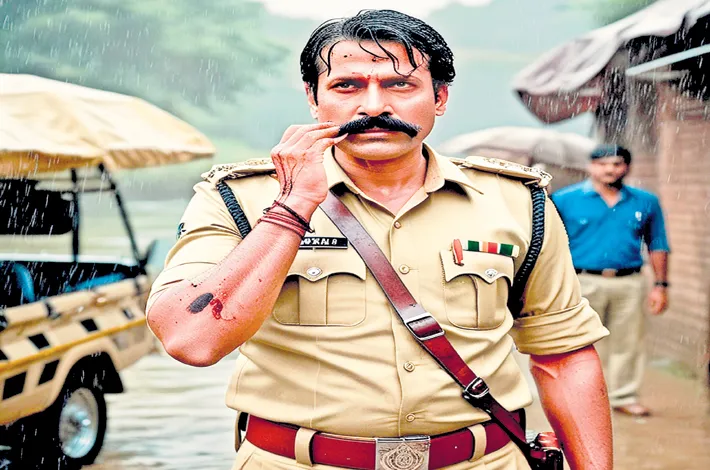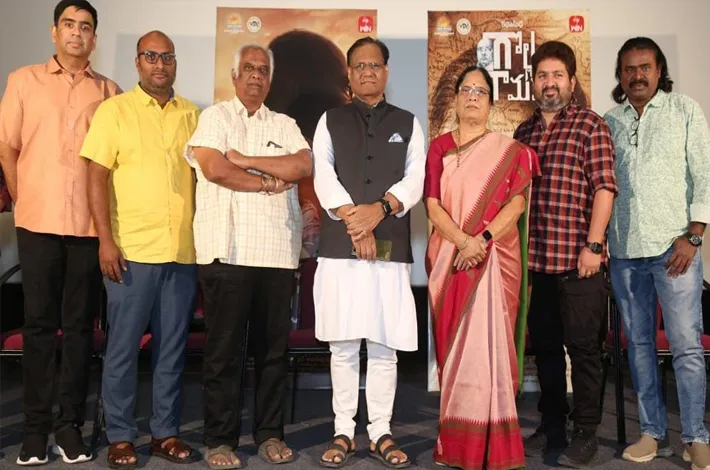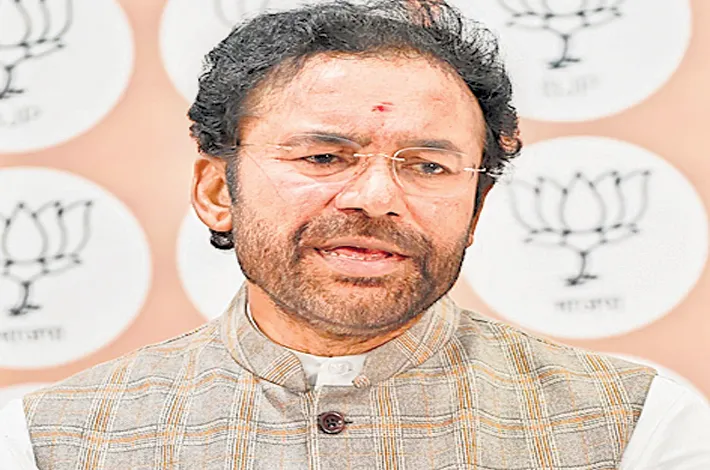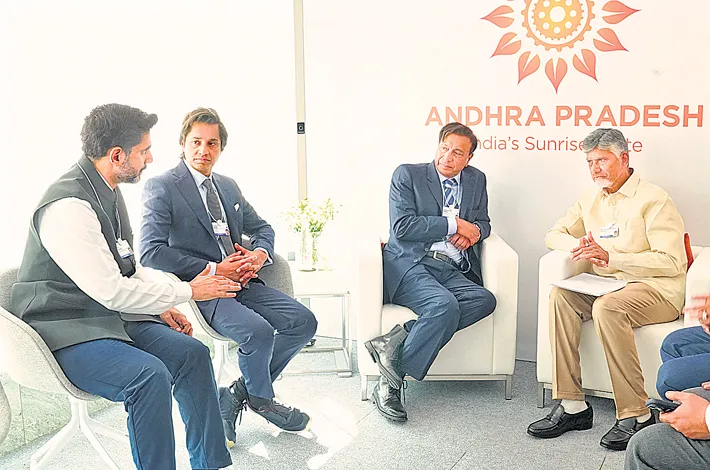The Rampuri Blade
22-10-2025 12:00:00 AM

The monsoon had painted Rampur in shades of bruised indigo, the air thick with the scent of wet earth and sizzling pakoras from roadside carts. In the shadow of the 18th-century Rampur Fort, where Mughal ghosts lingered in the minarets, Inspector Vikram Rao hunched over the body sprawled across the blood-slicked floor of Hari Lal's knife workshop. The victim, Hari Lal himself, lay with eyes frozen in betrayal, a ceremonial Rampuri churi—Rampur's infamous curved dagger—buried to the hilt in his chest. But it was the faint blue tinge around his lips that whispered the real killer's secret: poison, not steel.
Vikram, a wiry man in his forties with a mustache like a scimitar and scars from a forgotten Naxal skirmish, wiped rain from his brow. Rampur's blades were legends—forged for sultans, wielded by dacoits—yet this one had Hari's own monogram etched on the hilt. "Self-inflicted?" muttered Constable Meera, his sharp-eyed partner, her dupatta sodden against the workshop's thatched eaves. Vikram shook his head. "No. Look at the angle. Someone held his hand like a puppeteer."
Hari Lal had been Rampur's uncrowned king of cutlery, his shop in the bustling Sadar Bazaar a pilgrimage for collectors from Delhi to Dubai. But envy festered here like untreated rust. Three suspects shadowed the crime scene like monsoon clouds: Raju, the oily apprentice with debts to local moneylenders; Fatima, Hari's estranged wife, whose dowry demands had soured into whispers of divorce; and Karim, the rival artisan from the old haveli quarter, whose blades Hari had publicly shamed at last week's Urs festival.
Dawn broke sticky and unforgiving as Vikram began his hunt. The bazaar thrummed with life—vendors hawking Kairi mangoes, qawwals tuning sitars for evening mehfil—but death's chill seeped through the chaos. First, Raju: a lanky youth with callused hands and eyes darting like cornered rats. Vikram cornered him behind a stack of rawhide sheaths. "Where were you at midnight, beta?" Raju stammered, sweat beading despite the downpour. "Praying, saab. At the Jama Masjid. Hari ji was teaching me the secret quench—how to temper the steel with Ganga water. He trusted me!"
Vikram's gaze flicked to the boy's trembling fingers, stained not with forge soot but henna—women's work. "Trusted you enough to leave you his fortune?" A flicker of greed in Raju's eyes, but no lie heavy enough to sink him. Not yet.
Fatima was next, a veil of silk and spite in the dim parlor of their mildewed haveli. Incense curled from a hookah, masking the rot of neglect. "He beat me, Inspector," she hissed, her bangles clinking like accusations. "For years. Last night, he came home reeking of arrack, promising jewels from his latest sale. Lies, all lies." Her alibi: a neighbor's testimony, ironclad. But as Vikram rose, his boot nudged a loose floorboard. Beneath it, a crumpled envelope—Hari's handwriting, scrawled in Urdu: Fatima knows the poison's source. Trust no one. Vikram pocketed it, his pulse quickening. Blackmail? Or bait?
The trail led to Karim's forge by noon, a cavernous lair in the shadow of Raza Library's domes, where ancient manuscripts yellowed beside glowing anvils. Karim, broad as a bulbul and twice as proud, hammered a blade with rhythmic fury. "Hari was a thief!" he bellowed, sparks flying like fireflies. "Stole my design for that curved guard—said it was his own at the festival. I cursed him, yes, but murder? Allah forbid." His hammer paused; on the workbench lay a vial of milky liquid—belladonna extract, the poison's match. Karim's laugh boomed. "For rats, Inspector. The bazaar crawls with them."
Vikram's mind raced, piecing the shards. The dagger's angle suggested a right-handed killer, but Hari was left-dominant, his workshop bench scarred on the left. Raju was ambidextrous, Fatima frail, Karim a southpaw. None fit perfectly. As thunder grumbled, Meera burst in, breathless. "Saab, the CCTV from the alley—it's Hari entering alone at 11:45. But wait..." She thrust her phone forward: a blurred shadow, slipping out ten minutes later. No face, but a limp—Karim's war wound from '89 riots.
Interrogation turned brutal under the library's arched verandas. Karim cracked first, sweat mingling with rain. "Fine! I went to confront him. He laughed, waved that damned dagger. We struggled—I grabbed his hand, forced it down. The blade slipped... but the poison? Not me!" Lies crumbled like overfired clay. Vikram leaned in. "You bought the belladonna from the hakim in Chowk Bazaar. Paid in Hari's own rupees—stolen from his till yesterday."
Karim's eyes widened. "How—?"
"The envelope," Vikram said softly. "Hari suspected you. Left it for me, hidden where only a wife would look." But Fatima's alibi held. Raju? The henna—Raju's sister was the neighborhood mehndi artist, and he'd been seen buying poison-laced dye for "a festival prank." No.
The twist uncoiled like a serpent in the Jamuna River. Back at the workshop, Vikram replayed Meera's footage frame by frame. The shadow's limp was feigned—a cloth wrapped around the ankle, discarded in the gutter. And the height: too short for Karim, too slight for Raju. Fatima? No. It was Meera herself—his partner of five years, the one who'd spotted the poison first.
"Why?" Vikram whispered as he cuffed her in the fort's rain-lashed courtyard, the bazaar lights flickering like dying stars.
She spat, defiant. "Hari found out about us—the bribes we took from Karim to overlook his counterfeit blades. He threatened to expose you, Vikram. I couldn't let him ruin us." Her laugh was bitter. "The dagger was his own justice. Poetic, no?"
Vikram turned away, the weight of betrayal heavier than any Rampuri steel. As sirens wailed into the night, Rampur's daggers gleamed on, silent witnesses to the city's endless edge. In the end, the sharpest blade was trust, forged in shadows and quenched in blood.








